
Marbella: The Jewel of Costa del Sol
Marbella, located on Spain's Costa del Sol, is a haven for sun-seekers and culture enthusiasts alike. Known for its stunning beaches, luxurious resorts, and vibrant nightlife, this Mediterranean gem offers something for every traveler. The town is surrounded by the Sierra Blanca mountains, providing a scenic backdrop to its picturesque streets and charming old town, or Casco Antiguo. Here, you can wander through narrow, flower-adorned alleys, and discover hidden squares filled with cafes and boutiques. The Golden Mile is a must-visit, stretching from Marbella to Puerto Banús. This exclusive area is lined with upscale hotels, restaurants, and golf courses, catering to those looking for a taste of luxury. Puerto Banús itself is a bustling marina filled with yachts, designer shops, and lively bars. Whether you're interested in shopping, dining, or simply people-watching, this area is the epitome of opulence. For those interested in history and culture, Marbella does not disappoint. The town is home to several historic sites, such as the 16th-century Church of the Incarnation and the remnants of a 10th-century Moorish castle. Art lovers will enjoy the many galleries and the annual Marbella International Film Festival. Outdoor enthusiasts can explore the many hiking trails in the surrounding mountains or take a day trip to one of the nearby white villages, such as Ronda or Mijas. Marbella also boasts a rich culinary scene, with a variety of restaurants offering everything from traditional Spanish tapas to international cuisine. Fresh seafood is a highlight, and you can enjoy a meal with a view at one of the many beachfront chiringuitos. The local markets, such as the Marbella Market and San Pedro de Alcántara Market, are perfect for tasting local produce and finding unique souvenirs.
Local tips in Marbella
- Visit the old town early in the morning to avoid crowds and enjoy a peaceful stroll.
- Book your restaurants in advance, especially during peak tourist season.
- Use public transportation or taxis to navigate the Golden Mile and avoid parking hassles.
- Wear comfortable shoes, as the cobblestone streets in the old town can be uneven.
- Check the local calendar for festivals and events to enhance your visit.
Marbella: The Jewel of Costa del Sol
Marbella, located on Spain's Costa del Sol, is a haven for sun-seekers and culture enthusiasts alike. Known for its stunning beaches, luxurious resorts, and vibrant nightlife, this Mediterranean gem offers something for every traveler. The town is surrounded by the Sierra Blanca mountains, providing a scenic backdrop to its picturesque streets and charming old town, or Casco Antiguo. Here, you can wander through narrow, flower-adorned alleys, and discover hidden squares filled with cafes and boutiques. The Golden Mile is a must-visit, stretching from Marbella to Puerto Banús. This exclusive area is lined with upscale hotels, restaurants, and golf courses, catering to those looking for a taste of luxury. Puerto Banús itself is a bustling marina filled with yachts, designer shops, and lively bars. Whether you're interested in shopping, dining, or simply people-watching, this area is the epitome of opulence. For those interested in history and culture, Marbella does not disappoint. The town is home to several historic sites, such as the 16th-century Church of the Incarnation and the remnants of a 10th-century Moorish castle. Art lovers will enjoy the many galleries and the annual Marbella International Film Festival. Outdoor enthusiasts can explore the many hiking trails in the surrounding mountains or take a day trip to one of the nearby white villages, such as Ronda or Mijas. Marbella also boasts a rich culinary scene, with a variety of restaurants offering everything from traditional Spanish tapas to international cuisine. Fresh seafood is a highlight, and you can enjoy a meal with a view at one of the many beachfront chiringuitos. The local markets, such as the Marbella Market and San Pedro de Alcántara Market, are perfect for tasting local produce and finding unique souvenirs.
When is the best time to go to Marbella?
Iconic landmarks you can’t miss
Plaza de los Naranjos
Explore the captivating Plaza de los Naranjos in Marbella, a vibrant square filled with history, orange trees, and delightful cafes.
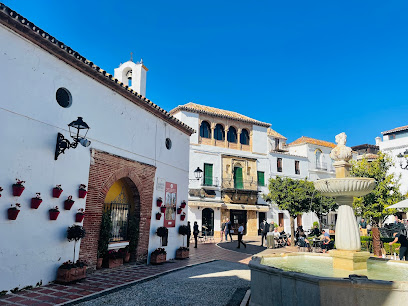
Parque de la Alameda
Explore the lush greenery and cultural charm of Parque de la Alameda, Marbella's serene park perfect for relaxation and leisurely strolls.

Paseo Maritimo De Marbella
Experience the beauty and vibrancy of Paseo Maritimo de Marbella, a stunning coastal promenade filled with culture, cuisine, and breathtaking views.
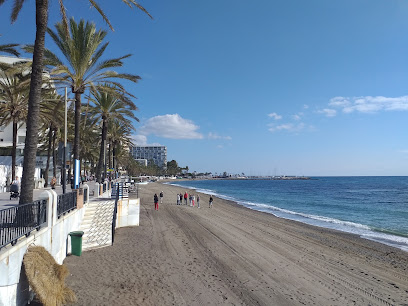
Avenida del Mar
Discover Avenida del Mar, Marbella's picturesque promenade adorned with stunning sculptures, vibrant atmosphere, and breathtaking Mediterranean views.
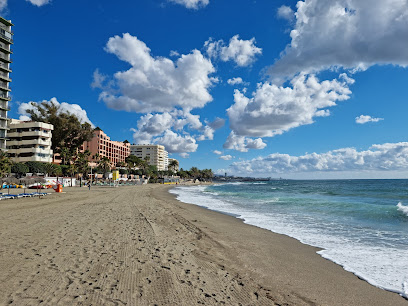
Arco bienvenida Marbella
Discover the Arco Bienvenida Marbella, an iconic gateway that blends stunning architecture with the rich cultural heritage of this vibrant Mediterranean city.
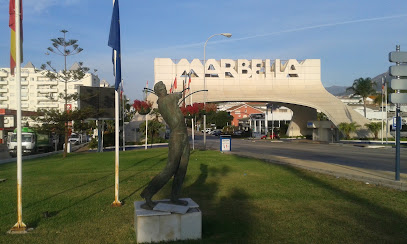
Muralla Urbana de Marbella
Explore the Muralla Urbana de Marbella, a stunning historical landmark showcasing the city's Moorish heritage and offering breathtaking views.
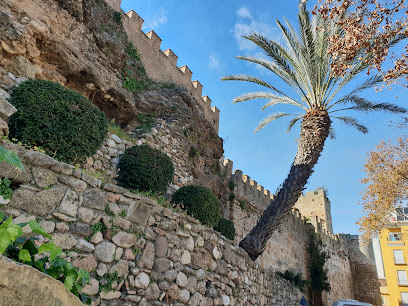
Casco histórico
Discover the vibrant history and charm of Casco Histórico, Marbella's enchanting district filled with culture, picturesque streets, and delightful local shops.
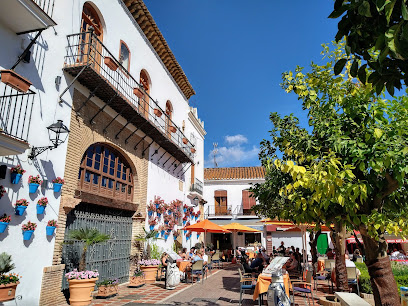
Museo del Grabado Español Contemporáneo
Explore the rich tapestry of contemporary Spanish printmaking at the Museo del Grabado Español Contemporáneo in Marbella, a cultural gem of the Costa del Sol.
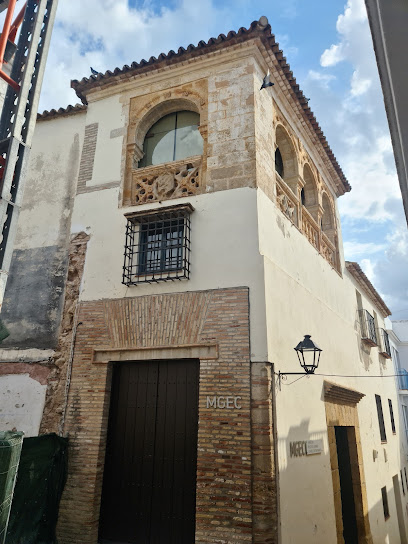
Fuente Virgen del Rocío
Experience the tranquility of Fuente Virgen del Rocío, a stunning fountain in Marbella that embodies the beauty and culture of this charming coastal town.
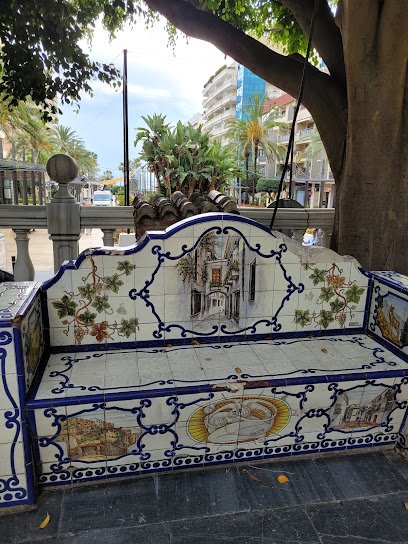
Torre Río Real
Discover the historic Torre Río Real in Marbella – a breathtaking monument offering scenic views and a glimpse into Andalusian history.
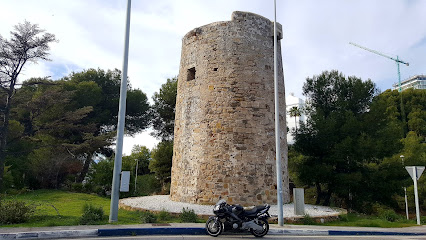
Cristo del Amor bridge
Experience the serene beauty and architectural elegance of the Cristo del Amor Bridge in Marbella, a must-see for all travelers.
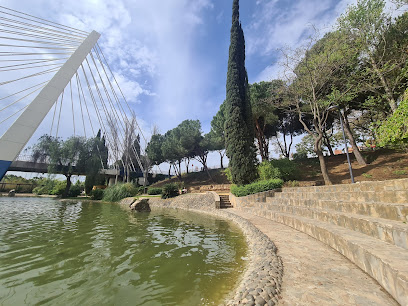
Torre de la Pólvora
Explore the historic Torre de la Pólvora in Marbella, a stunning castle offering breathtaking views and a deep dive into the region's rich history.
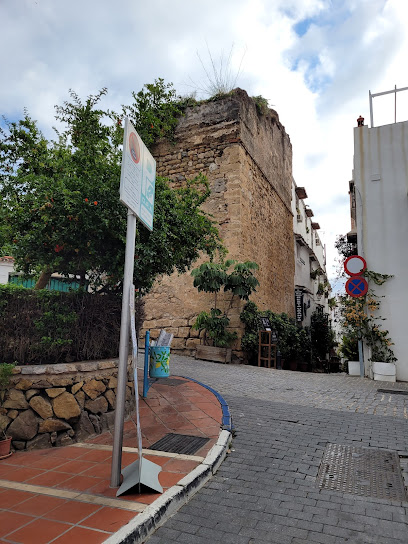
Modern Lighthouse Marbella (green)
Experience the breathtaking views at the Modern Lighthouse Marbella, a stunning symbol of maritime heritage and coastal beauty.
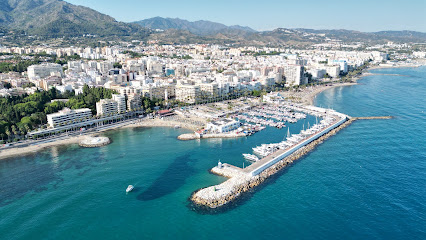
El antiguo Barrio Nuevo de Marbella
Discover El Antiguo Barrio Nuevo de Marbella, where rich history meets vibrant culture in a picturesque Andalusian setting.
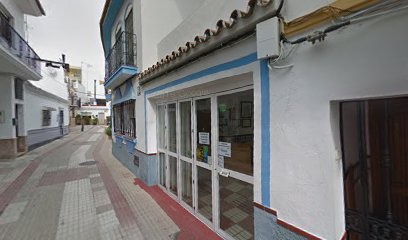
Unmissable attractions to see
Dunas de Artola o Cabopino
Explore the stunning sand dunes and rich ecological diversity of Dunas de Artola o Cabopino, a serene nature preserve near Marbella.
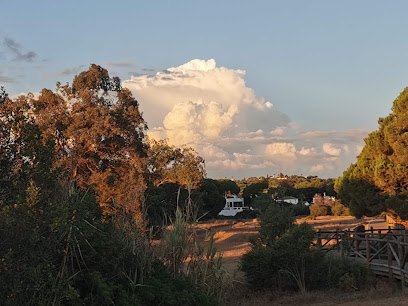
Mirador de Ronda
Experience the stunning vistas and rich history of Ronda at the Mirador de Ronda, a must-visit scenic spot in Andalusia.
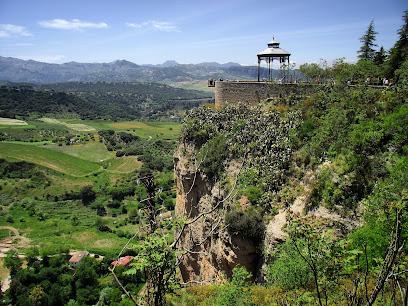
Parque de la Represa
Experience the charm and natural beauty of Parque de la Represa, a tranquil escape in the heart of Marbella, perfect for relaxation and exploration.
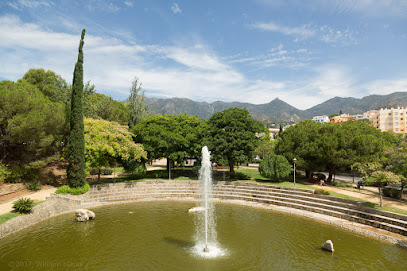
Embarcadero
Experience the beauty of Embarcadero, a vibrant coastal attraction in Marbella, where stunning views and local culture come together.
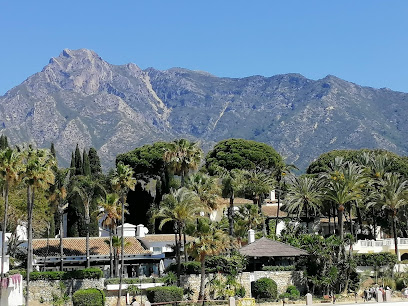
Mercado Municipal de Marbella
Explore the Mercado Municipal de Marbella for a taste of local cuisine, fresh produce, and a vibrant cultural experience in the heart of the city.
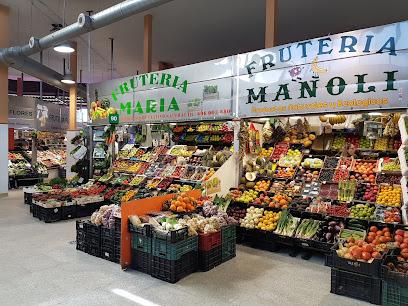
Paseo Maritimo De Marbella
Discover the Paseo Maritimo de Marbella, a stunning coastal promenade perfect for walking, dining, and taking in breathtaking Mediterranean views.
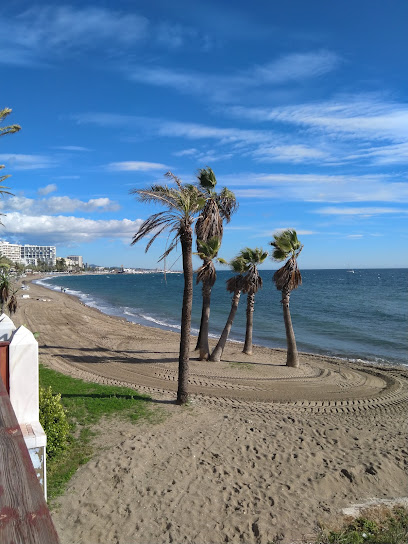
Watchtower of Cala de Mijas
Explore the historic Watchtower of Cala de Mijas, a coastal gem offering stunning views and a glimpse into Spain's maritime past.
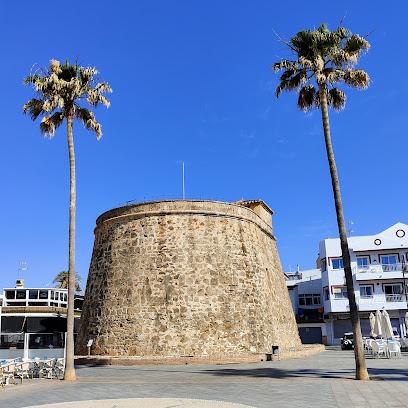
Organic Market & Food Marbella
Explore the flavors of health at Organic Market & Food Marbella, your go-to spot for delicious vegetarian and vegan cuisine in the heart of Costa del Sol.
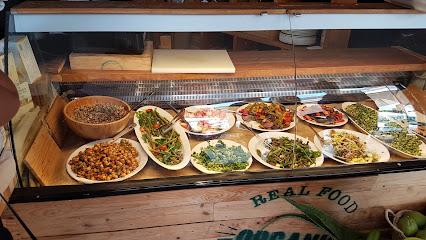
Arco bienvenida Marbella
Discover the iconic Arco Bienvenida in Marbella, a stunning gateway celebrating Andalusian culture and hospitality, perfect for memorable photos and exploration.
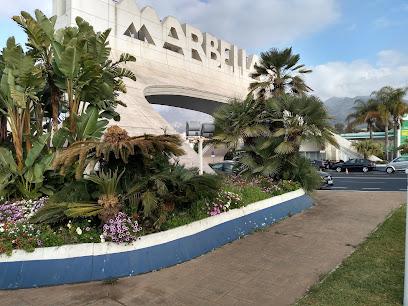
Cueva de las Columnas
Discover the enchanting Cueva de las Columnas in Málaga, Spain – a breathtaking cave system with stunning limestone formations and serene natural beauty.
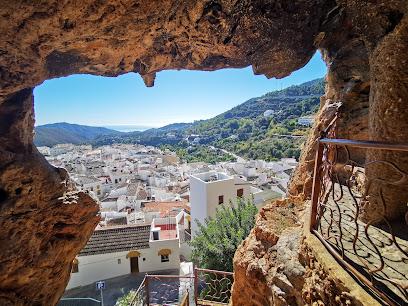
Turtle lake
Discover the tranquility of Turtle Lake, Marbella's serene park offering beautiful landscapes and a peaceful retreat for all visitors.
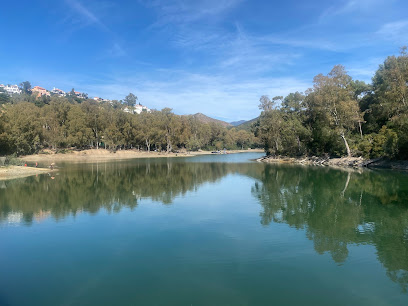
Vigil de Quiñones Park
Experience the tranquility of Vigil de Quiñones Park in Marbella, a lush green oasis perfect for relaxation and nature lovers.
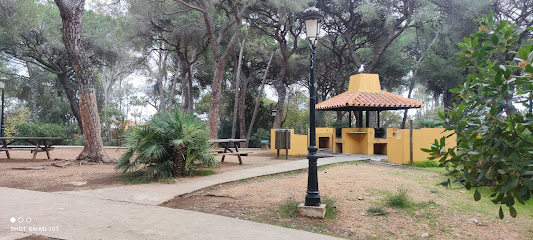
Marbella Grand Mosque
Experience the architectural beauty and cultural significance of Marbella Grand Mosque, a serene oasis in the heart of Marbella, Spain.
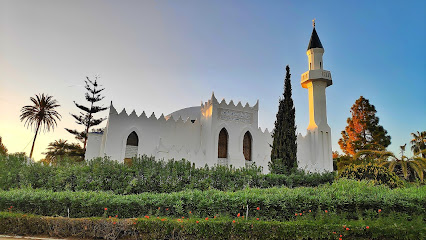
Parque Forestal Los Tres Jardines
Experience the tranquil beauty of Parque Forestal Los Tres Jardines in Marbella, where nature meets recreation in a serene urban oasis.
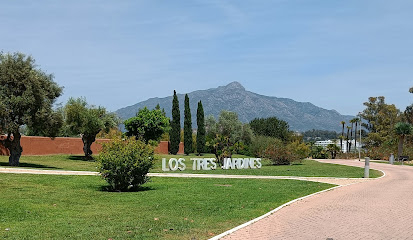
Pirulí
Experience the charm of Marbella at Pirulí, a stunning tourist attraction offering breathtaking views and a taste of local culture.
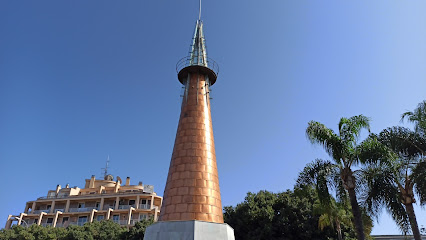
Essential places to dine
El Cordobes
Experience authentic Mediterranean flavors at El Cordobes in Marbella - where every dish tells a story.
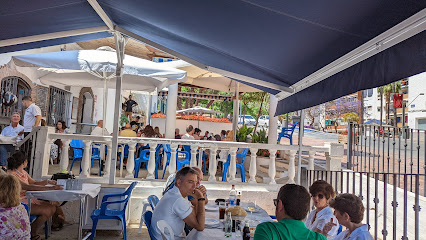
The Beach House Restaurant Marbella
Experience exquisite Mediterranean dining at The Beach House Restaurant Marbella with stunning sea views and delightful cuisine.
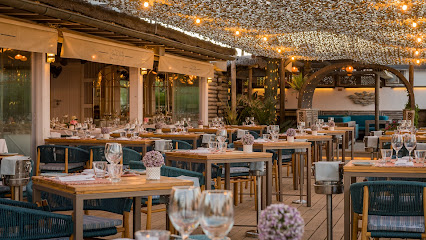
Besaya Beach
Experience the ultimate Mediterranean escape at Besaya Beach with exquisite dining and breathtaking views in Marbella.
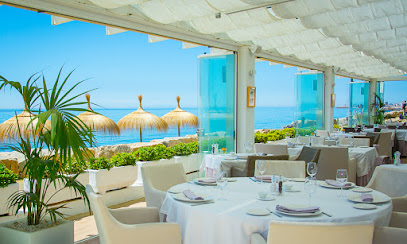
HACIENDA PATAGONICA Tapas Grill
Discover authentic Argentinian cuisine at Hacienda Patagonica - where every meal is a celebration of flavors in Marbella.
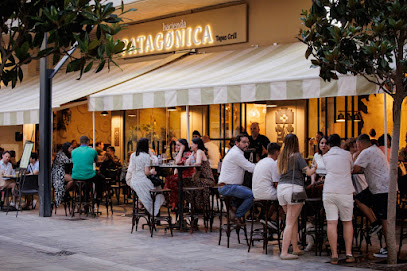
Restaurante Conmpasión
Experience authentic Mediterranean flavors at Restaurante Conmpasión in Marbella – a must-visit for food lovers seeking exquisite tapas.
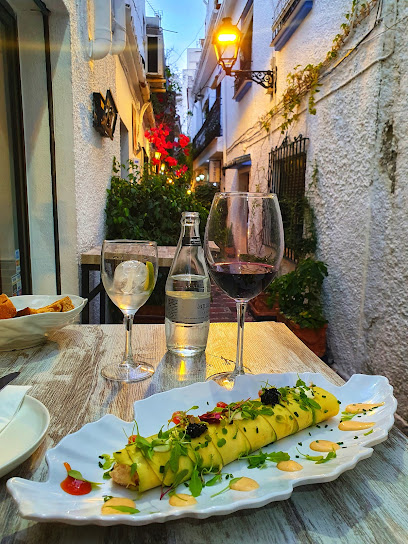
The Farm Restaurant
Discover The Farm Restaurant in Marbella - A fusion of health-conscious cuisine with Mediterranean flair and live music awaits you.
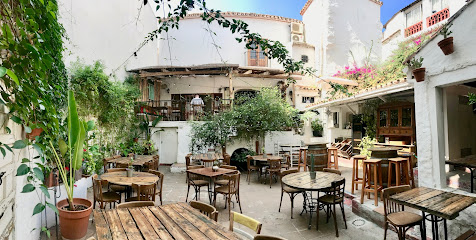
Restaurant El Cortijo
Experience authentic Spanish cuisine at Restaurant El Cortijo in Marbella - where every dish tells a story of tradition and flavor.
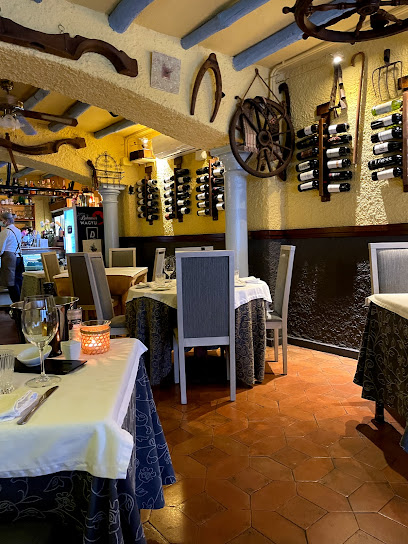
ANGUS Marbella-SteakHouse
Experience succulent steaks and vibrant flavors at Angus Marbella-SteakHouse, your ultimate destination for grilling excellence on the Costa del Sol.
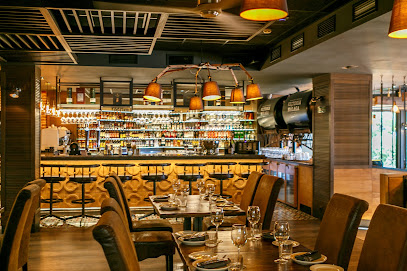
El Patio de Mariscal
Experience authentic Spanish cuisine at El Patio de Mariscal in Marbella—home to exquisite paella and vibrant dining atmosphere.
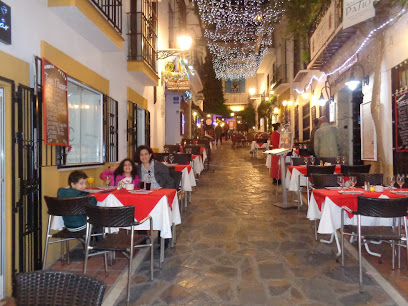
Zozoï
Experience the best of Mediterranean cuisine at Zozoï in Marbella - where fine dining meets exquisite flavors.
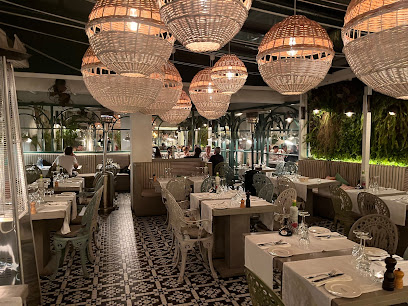
Restaurante Garum Marbella
Experience exquisite Mediterranean cuisine with breathtaking sea views at Restaurante Garum Marbella – a culinary jewel on the Costa del Sol.
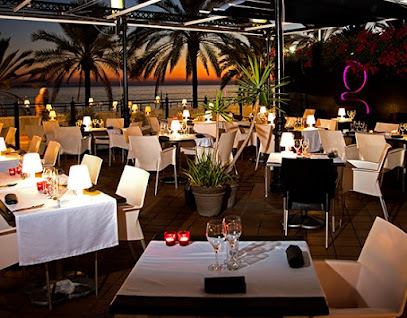
Timonel Marbella
Experience exquisite Mediterranean cuisine at Timonel Marbella with stunning seaside views and a warm atmosphere.
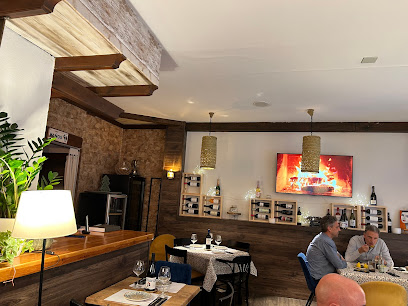
The Harbour Bar and Restaurant Marbella
Experience the essence of Mediterranean dining at The Harbour Bar and Restaurant Marbella with stunning marina views.
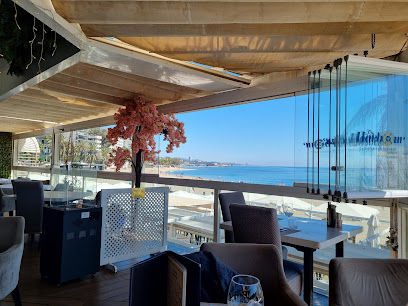
Casa tua Restaurant Marbella
Experience authentic Italian cuisine at Casa Tua Restaurant Marbella, where Mediterranean flavors meet exquisite dining in a charming setting.
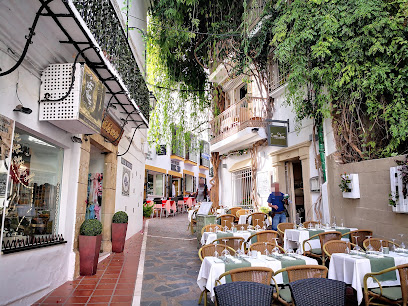
La Ola Marbella
Experience authentic Mediterranean flavors at La Ola Marbella, where fresh seafood meets stunning ocean views for an unforgettable dining experience.
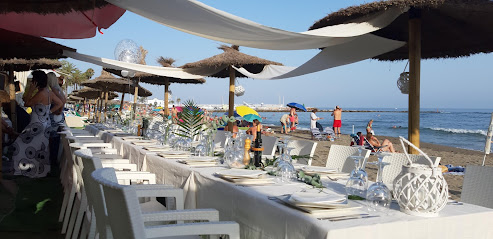
Markets, malls and hidden boutiques
La Cañada Shopping Center
Discover a vibrant shopping experience at La Cañada Shopping Center in Marbella, where luxury meets leisure in a stunning setting.
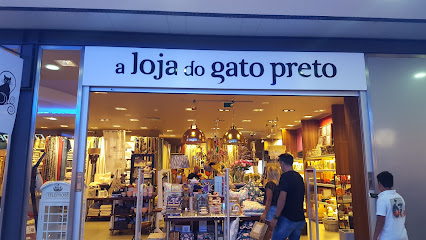
El Corte Inglés Marbella
Discover the ultimate shopping experience at El Corte Inglés Marbella, where luxury meets everyday essentials in a vibrant Andalusian setting.
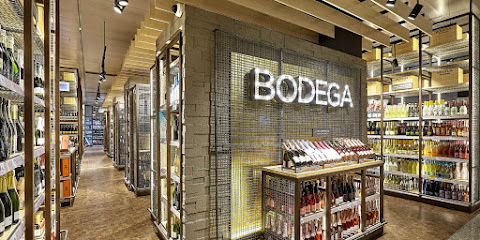
Banús Marina Mall
Explore luxury shopping and exquisite dining at Banús Marina Mall, Marbella’s top destination for fashion and leisure on the Costa del Sol.

Centro Comercial Centro Plaza
Discover the vibrant Centro Comercial Centro Plaza in Marbella, a shopping haven with diverse stores, dining options, and lively atmosphere perfect for tourists.
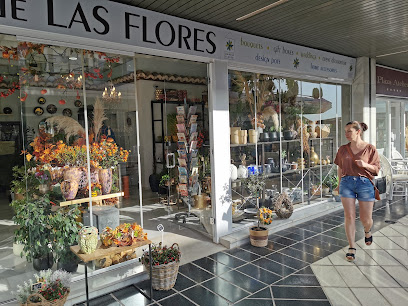
El Corte Inglés El Capricho
Discover a shopping oasis at El Corte Inglés El Capricho in Marbella, blending luxury brands, local crafts, and delightful dining experiences.
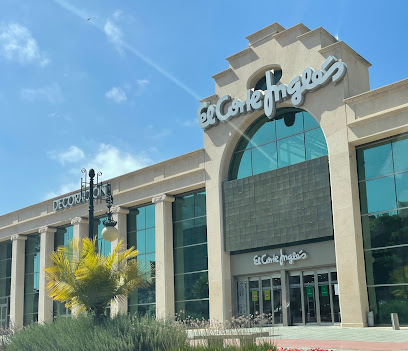
ALE-HOP
Discover ALE-HOP in Marbella for unique gifts, stylish clothing, and vibrant souvenirs that capture the spirit of the Costa del Sol.
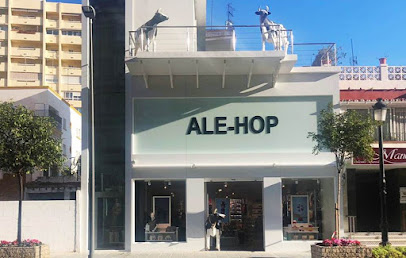
GIPSY MARBELLA souvenirs & Handpans
Explore the enchanting GIPSY MARBELLA for unique souvenirs and beautiful handpans that capture the essence of your Costa del Sol adventure.
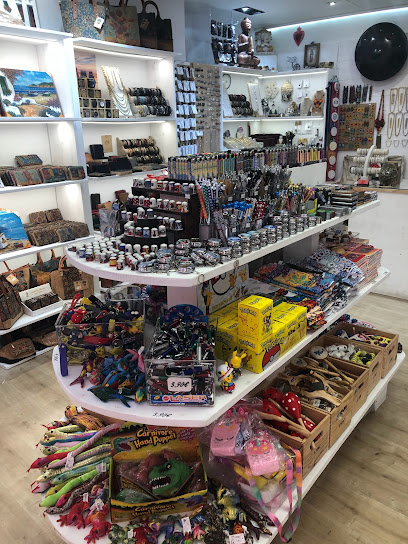
SF Urban Marbella
Explore haute couture at SF Urban Marbella, the ultimate destination for stylish clothing and accessories in the heart of Marbella.
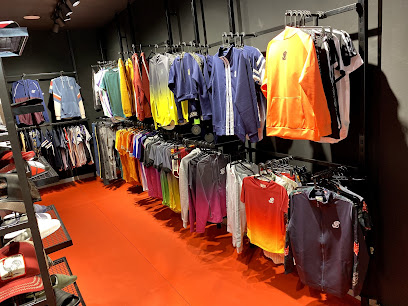
Chic Vintage
Explore Chic Vintage in Marbella for a unique selection of vintage clothing and bags, perfect for fashion lovers seeking timeless elegance.
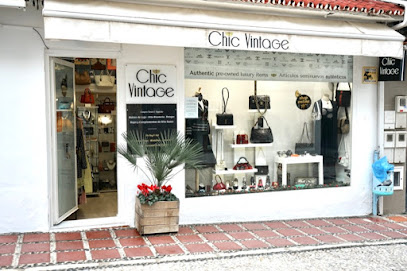
Vintage Deja Vu
Discover unique vintage treasures at Vintage Deja Vu, Marbella's premier destination for timeless fashion and antique decor.
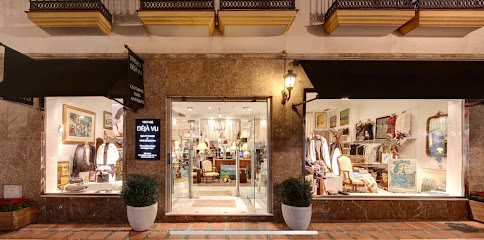
Story 1961
Explore the luxurious world of Story 1961 in Marbella, where haute couture fashion meets exquisite jewelry and accessories.
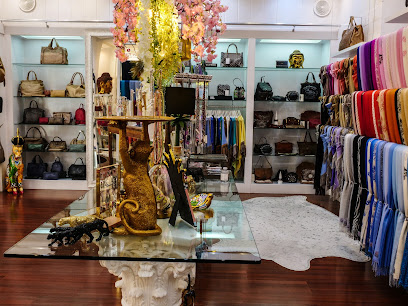
Bagalux
Explore Bagalux in Marbella for a chic selection of luxurious handbags and exquisite jewelry, perfect for fashion aficionados.
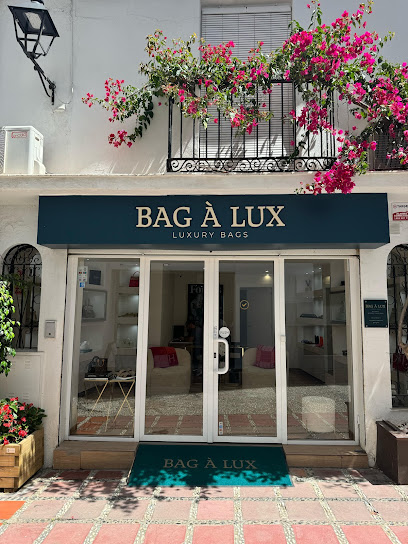
OHANA MODA
Explore Ohana Moda in Marbella for unique handmade jewelry and fashion, reflecting the artistic spirit of the region.
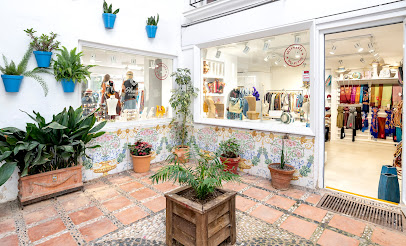
Marion Nadjar Marbella
Explore Marion Nadjar Marbella for exquisite women's fashion that embodies elegance and modern style in the heart of Marbella.
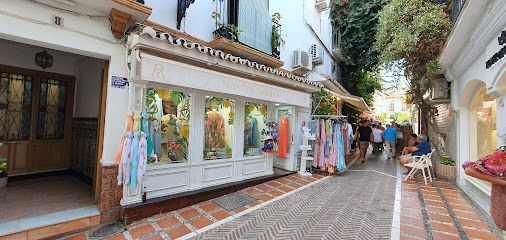
Podium Marbella Boutique
Discover luxury fashion and unique styles at Podium Marbella Boutique, your go-to clothing store in the heart of Marbella.
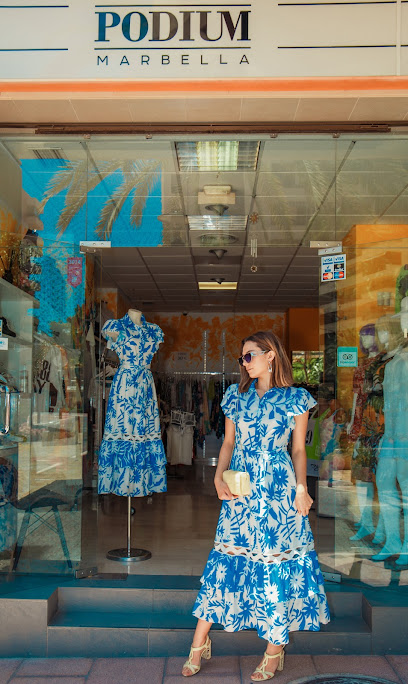
Essential bars & hidden hideouts
Andy's Beach Bar
Experience the vibrant atmosphere of Andy's Beach Bar in Marbella, where delicious tapas and refreshing cocktails meet breathtaking seaside views.
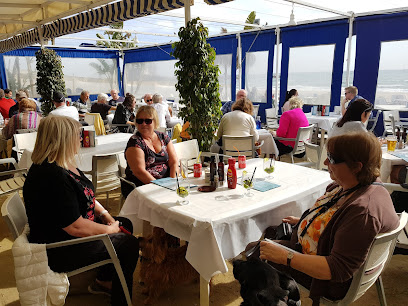
La Polaca
Experience the vibrant flavors of Marbella at La Polaca, your go-to bar for delicious tapas and refreshing drinks in a lively atmosphere.
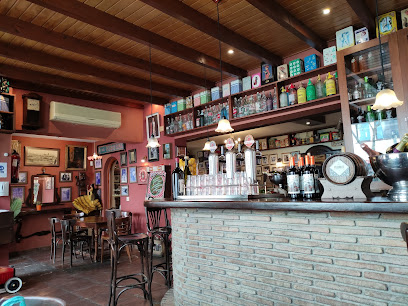
Bar El Estrecho
Experience authentic Spanish tapas at Bar El Estrecho in Marbella, where flavor meets tradition in a lively atmosphere.
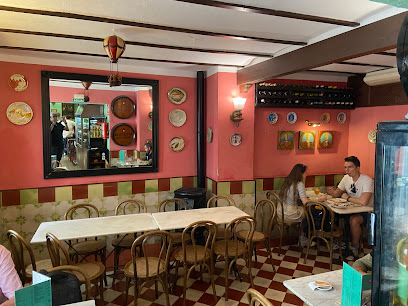
Bar La Bodega del Mar
Experience authentic Spanish tapas and Mediterranean delights at Bar La Bodega del Mar, a culinary gem in the heart of Marbella.
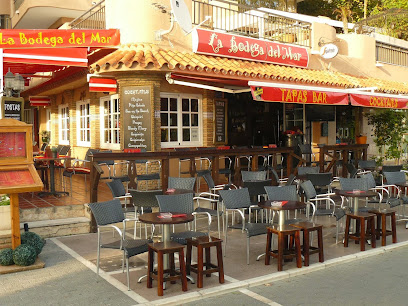
Punto Faro Marbella
Experience the vibrant nightlife at Punto Faro Marbella, where refreshing drinks meet stunning views at the stunning Puerto Deportivo.
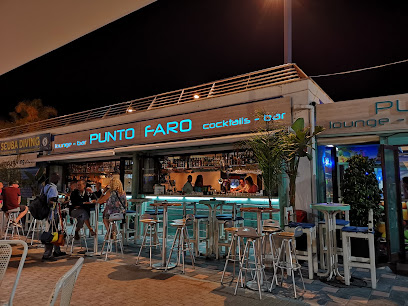
La Libreria
Experience the lively atmosphere of La Libreria in Marbella, where expertly crafted cocktails and delicious dishes await in a vibrant setting.
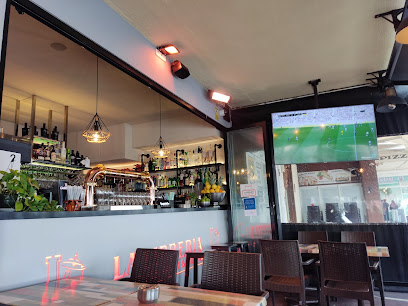
Joys Live, Bar & Nightclub
Discover Joys Live in Marbella: a vibrant bar and nightclub offering unforgettable live music, exquisite cocktails, and a lively atmosphere for all night owls.
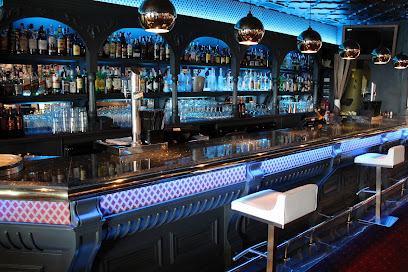
The Claddagh Bar
Experience authentic Irish culture at The Claddagh Bar in Marbella, where lively atmosphere meets delicious food and drink.
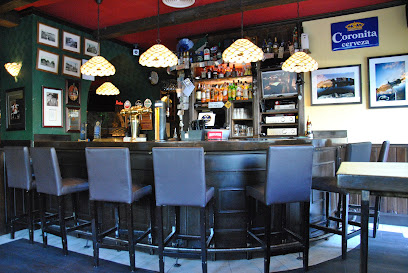
The BananaTree Bar Restaurant
Experience the vibrant nightlife and delicious cuisine at The BananaTree Bar Restaurant, a must-visit destination in Marbella for all tourists.
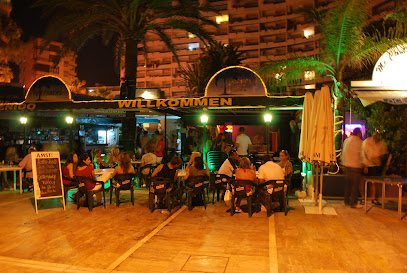
Bar Gallery
Experience the vibrant nightlife of Marbella at Bar Gallery, your go-to destination for cocktails and a lively atmosphere.
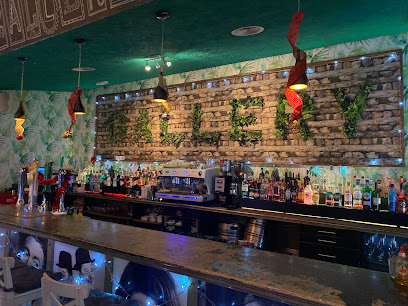
El Panamé
Experience the essence of Marbella at El Panamé, where exquisite cocktails meet stunning Mediterranean views in a lively atmosphere.
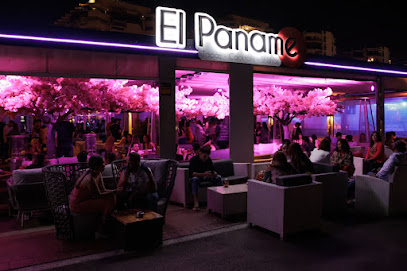
Sinatra Bar
Discover the lively Sinatra Bar in Puerto Banús, where delicious drinks and a vibrant atmosphere await you.
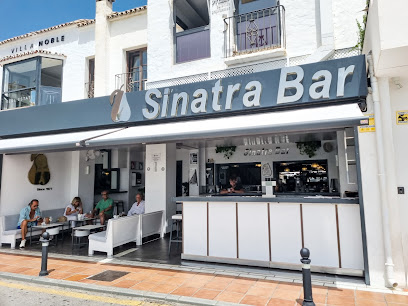
Bar Guerola
Discover the heart of Marbella at Bar Guerola, where delicious tapas and vibrant atmosphere come together for an unforgettable culinary journey.
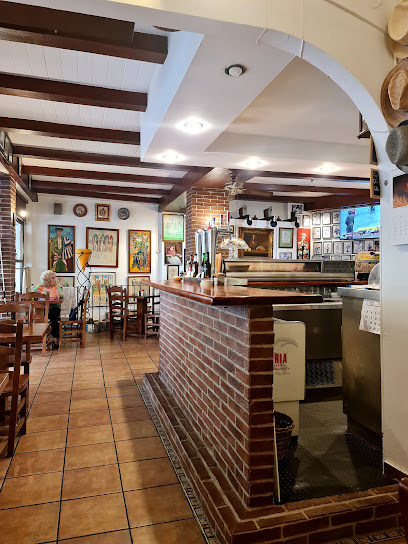
Moët
Discover the lively atmosphere and exquisite drink selection at Moët, a must-visit bar in the heart of Marbella, perfect for socializing and unwinding.
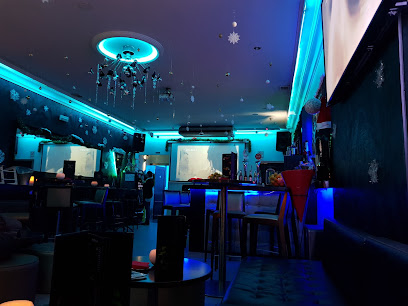
Living Room Bar
Experience the lively ambiance of Living Room Bar in Marbella, where delicious tapas and refreshing cocktails await in a chic lounge setting.
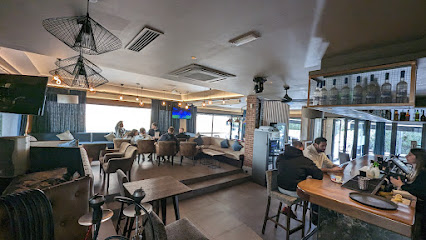
Local Phrases about Marbella
-
- HelloHola
[oh-la] - GoodbyeAdiós
[ah-dee-ohs] - YesSí
[see] - NoNo
[no] - Please/You're welcomePor favor/De nada
[por fa-vor/de na-da] - Thank youGracias
[gra-thyas] - Excuse me/SorryPerdón/Lo siento
[per-thon/lo syen-to] - How are you?¿Cómo estás?
[ko-mo es-tas] - Fine. And you?Bien. ¿Y tú?
[byen. ee too] - Do you speak English?¿Hablas inglés?
[ab-las een-gles] - I don't understandNo entiendo
[no en-tyen-do]
- HelloHola
-
- I'd like to see the menu, pleaseMe gustaría ver la carta, por favor
[me goos-ta-ree-a ver la kar-ta, por fa-vor] - I don't eat meatNo como carne
[no ko-mo kar-ne] - Cheers!¡Salud!
[sa-lood] - I would like to pay, pleaseMe gustaría pagar, por favor
[me goos-ta-ree-a pa-gar, por fa-vor]
- I'd like to see the menu, pleaseMe gustaría ver la carta, por favor
-
- Help!¡Ayuda!
[a-yu-da] - Go away!¡Vete!
[ve-te] - Call the Police!¡Llama a la policía!
[ya-ma a la po-li-thya] - Call a doctor!¡Llama a un médico!
[ya-ma a un me-di-ko] - I'm lostEstoy perdido
[es-toy per-di-do] - I'm illEstoy enfermo
[es-toy en-fer-mo]
- Help!¡Ayuda!
-
- I'd like to buy...Me gustaría comprar...
[me goos-ta-ree-a kom-prar] - I'm just lookingSolo estoy mirando
[so-lo es-toy mee-ran-do] - How much is it?¿Cuánto cuesta?
[kwan-to kwe-sta] - That's too expensiveEs demasiado caro
[es de-ma-sya-do ka-ro] - Can you lower the price?¿Puedes bajar el precio?
[pwe-des ba-har el pre-thyo]
- I'd like to buy...Me gustaría comprar...
-
- What time is it?¿Qué hora es?
[ke o-ra es] - It's one o'clockEs la una
[es la oo-na] - Half past (10)Las diez y media
[las dyeth ee me-dya] - MorningMañana
[ma-nya-na] - AfternoonTarde
[tar-de] - EveningNoche
[no-che] - YesterdayAyer
[a-yer] - TodayHoy
[oy] - TomorrowMañana
[ma-nya-na] - 1Uno
[oo-no] - 2Dos
[dos] - 3Tres
[tres] - 4Cuatro
[kwa-tro] - 5Cinco
[theen-ko] - 6Seis
[says] - 7Siete
[syet-te] - 8Ocho
[o-cho] - 9Nueve
[nwe-ve] - 10Diez
[dyeth]
- What time is it?¿Qué hora es?
-
- Where's a/the...?¿Dónde está...?
[don-de es-ta] - What's the address?¿Cuál es la dirección?
[kwal es la dee-rek-thyon] - Can you show me (on the map)?¿Puedes enseñarme (en el mapa)?
[pwe-des en-se-nyar-me (en el ma-pa)] - When's the next (bus)?¿Cuándo es el próximo (autobús)?
[kwan-do es el prok-sy-mo (ow-to-boos)] - A ticket (to ....)Un billete (a ....)
[oon bee-yet-te (a)]
- Where's a/the...?¿Dónde está...?
History of Marbella
-
Marbella's history can be traced back to its origins as a Phoenician settlement. The Phoenicians, known for their maritime trading, established a colony here around the 7th century BC. Later, the Romans took over and expanded the settlement, naming it 'Salduba.' The remains of Roman villas, baths, and mosaics can still be found, highlighting the city's ancient roots.
-
In the 8th century, Marbella fell under Moorish rule as part of the larger Al-Andalus region. The Moors left a significant imprint on the city, especially with the construction of the Alcazaba, a fortress overlooking the city. The narrow, winding streets of Marbella's old town, with their whitewashed buildings and intricate tile work, are a testament to this era.
-
Marbella was reconquered by the Catholic Monarchs, Ferdinand and Isabella, in 1485. This period marked the end of Moorish rule and the beginning of Christian dominance. Significant architectural and cultural changes occurred, including the conversion of the city's main mosque into the Iglesia de la Encarnación, a church that still stands today.
-
The 19th century saw Marbella transition into an industrial hub, particularly with the rise of its sugar and iron industries. The construction of the El Ingenio sugar factory and the La Concepción iron foundry brought economic prosperity to the region. The remnants of these industrial sites offer a glimpse into Marbella's industrial past.
-
The mid-20th century marked Marbella's transformation into a luxury tourist destination. The development of the Golden Mile, a stretch of prestigious properties and upscale resorts, attracted international celebrities and royalty. Marbella became synonymous with glamour and opulence, hosting figures such as Audrey Hepburn and Sean Connery.
-
Marbella is rich in cultural heritage, celebrated through various festivals and traditions. One of the most notable is the Feria de San Bernabé, held in June, which commemorates the city's patron saint. The festival features parades, flamenco performances, and traditional Andalusian cuisine, offering visitors a vibrant cultural experience.
Marbella Essentials
-
Marbella, located in the southern region of Spain's Costa del Sol, is easily accessible by various means of transportation. The closest airport is Málaga-Costa del Sol Airport (AGP), approximately 50 kilometers away. From the airport, you can take a direct bus, taxi, or rent a car to reach Marbella. Alternatively, if you're arriving by train, the nearest major railway station is in Málaga, where you can catch a bus or taxi to Marbella.
-
Once in Marbella, the town is well-connected by a network of local buses that cover most areas, including the neighboring towns. Taxis are widely available and can be hailed on the street or booked via phone. For more flexibility, consider renting a car, though be mindful of parking availability. Additionally, Marbella is quite walkable, especially the Old Town, allowing you to explore its charming streets on foot.
-
The currency used in Spain is the Euro (€). Credit and debit cards are widely accepted in most establishments, including hotels, restaurants, and shops. However, it's always good to carry some cash for smaller businesses, markets, or in case of emergency. ATMs are plentiful throughout Marbella, enabling easy access to cash.
-
Marbella is generally a safe destination for tourists, but like any popular tourist spot, it is wise to take standard precautions. Be vigilant in crowded places like markets and public transport to avoid pickpocketing. While Marbella doesn't have specific high-crime areas targeting tourists, it’s best to stay alert, especially in busy areas and at night. Secure your belongings and avoid displaying valuables openly.
-
In case of an emergency, dial 112 for immediate assistance, which covers police, fire, and medical emergencies. Marbella has several medical facilities, including the Costa del Sol Hospital, which provides comprehensive care. Pharmacies are also available for minor health issues. Make sure to have travel insurance that covers medical emergencies.
-
Fashion: Do dress smartly when dining out or visiting upscale establishments. Avoid beachwear in town areas. Religion: Do respect religious sites by dressing modestly and keeping noise levels down. Public Transport: Do validate your ticket before boarding and offer your seat to elderly passengers. Don't eat or drink on public transport. Greetings: Do greet people with a friendly 'Hola' and a handshake. Eating & Drinking: Do try local dishes and tapas. Don't rush meals; dining is a social affair to be enjoyed leisurely.
-
Experience Marbella like a local by visiting its local markets, such as the Marbella Market on Mondays, where you can buy fresh produce and local goods. Enjoy a paseo (evening stroll) along the Paseo Marítimo, mingling with locals. Don’t miss the opportunity to dine in traditional tapas bars and chiringuitos (beach bars). Engage with locals, as they are often friendly and willing to share insights about the best places to visit and dine.
Trending Landmarks in Marbella
-
Plaza de los Naranjos
-
Parque de la Alameda
-
Paseo Maritimo De Marbella
-
Avenida del Mar
-
Arco bienvenida Marbella
-
Muralla Urbana de Marbella
-
Casco histórico
-
Museo del Grabado Español Contemporáneo
-
Fuente Virgen del Rocío
-
Torre Río Real
-
Cristo del Amor bridge
-
Torre de la Pólvora
-
Modern Lighthouse Marbella (green)
-
El antiguo Barrio Nuevo de Marbella
Nearby Cities to Marbella
-
Things To Do in Málaga
-
Things To Do in Catalan Bay
-
Things To Do in Moorish Castle
-
Things To Do in Casemates Square
-
Things To Do in Gibraltar
-
Things To Do in Main Street
-
Things To Do in Alameda Botanic Gardens
-
Things To Do in St. Michael's Cave
-
Things To Do in Queensway Quay Marina
-
Things To Do in Gorham's Cave Complex
-
Things To Do in Europa Point
-
Things To Do in Tetouan
-
Things To Do in Tangier
-
Things To Do in Cádiz
-
Things To Do in Seville













